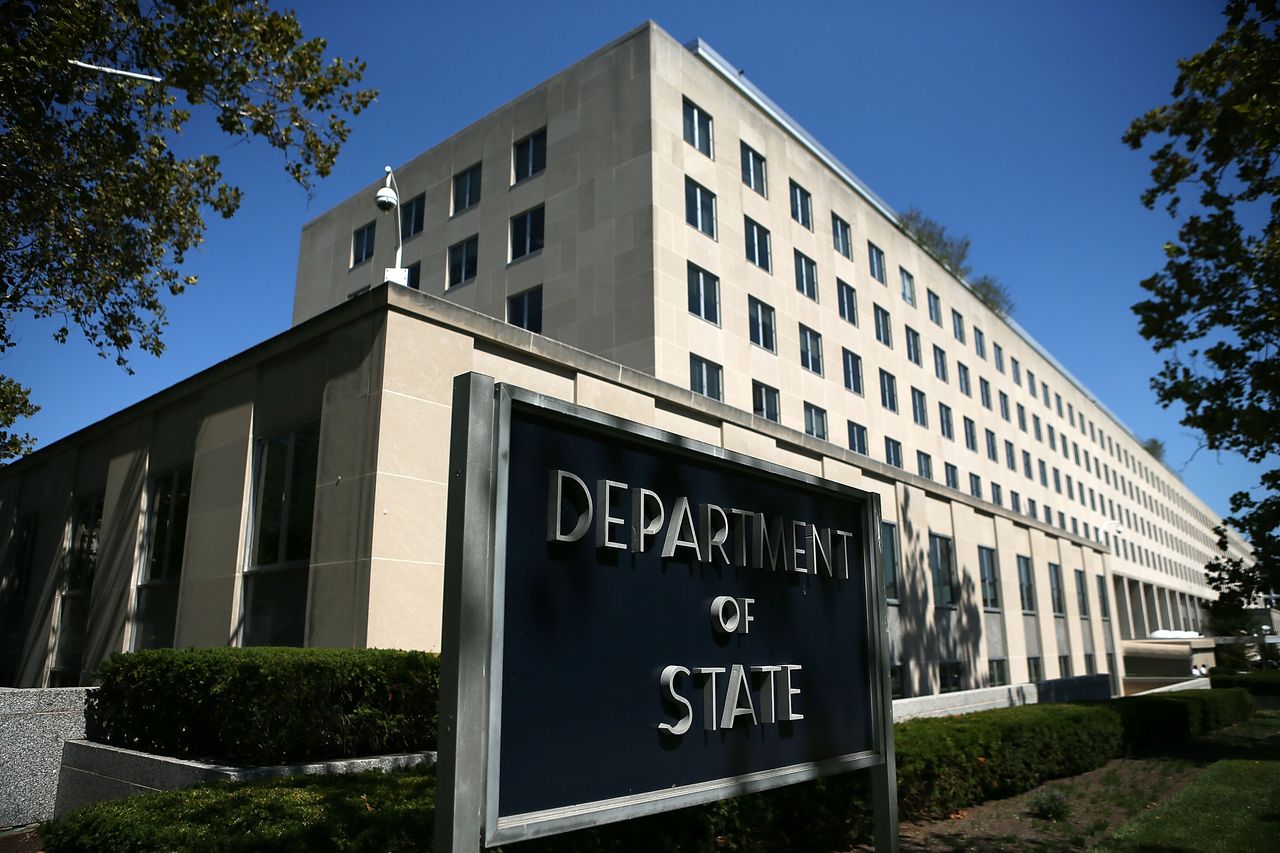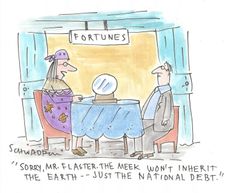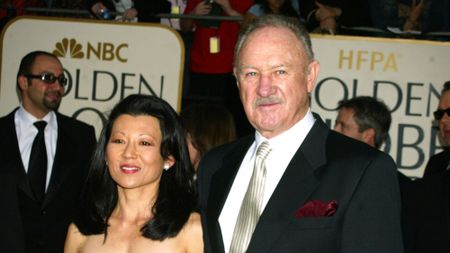State Department higher-ups are mostly political appointees, not foreign service experts


There are two ways to become a high-ranking official in the U.S. State Department: You could pass the prestigious foreign service exam, gradually work your way up the ladder to increasingly senior positions, and finally become an influential and experienced diplomat. Or you could just raise a lot of money for a presidential campaign and then happen to mention that an ambassadorship to, say, Argentina or Hungary would be nice.
That latter route is becoming increasingly common, to the point that just 30 percent of State employees ranked assistant secretary or higher are foreign service experts today, while 51 percent are political appointees. In 1975, 60 percent of State higher-ups had risen through the ranks, and just 37 percent were there because they had friends in high places.
A report from the Academy of America Diplomacy argues that reliance on political appointees leaves the State Department less informed and experienced, and removes motivation for top personnel to stay in government work without opportunity for advancement.
Subscribe to The Week
Escape your echo chamber. Get the facts behind the news, plus analysis from multiple perspectives.

Sign up for The Week's Free Newsletters
From our morning news briefing to a weekly Good News Newsletter, get the best of The Week delivered directly to your inbox.
From our morning news briefing to a weekly Good News Newsletter, get the best of The Week delivered directly to your inbox.
Sign up for Today's Best Articles in your inbox
A free daily email with the biggest news stories of the day – and the best features from TheWeek.com
Bonnie Kristian was a deputy editor and acting editor-in-chief of TheWeek.com. She is a columnist at Christianity Today and author of Untrustworthy: The Knowledge Crisis Breaking Our Brains, Polluting Our Politics, and Corrupting Christian Community (forthcoming 2022) and A Flexible Faith: Rethinking What It Means to Follow Jesus Today (2018). Her writing has also appeared at Time Magazine, CNN, USA Today, Newsweek, the Los Angeles Times, and The American Conservative, among other outlets.
-
 Today's political cartoons - March 28, 2025
Today's political cartoons - March 28, 2025Cartoons Friday's cartoons - national debt, debt of gratitude, and more
By The Week US Published
-
 China's football crisis: what's happened to Xi's XI?
China's football crisis: what's happened to Xi's XI?In The Spotlight String of defeats and finishing bottom of World Cup qualifying group comes a decade after Xi Jinping launched a football crusade
By Chas Newkey-Burden, The Week UK Published
-
 'Like a sound from hell': Serbia and sonic weapons
'Like a sound from hell': Serbia and sonic weaponsThe Explainer Half a million people sign petition alleging Serbian police used an illegal 'sound cannon' to disrupt anti-government protests
By Abby Wilson Published
-
 New Mexico to investigate death of Gene Hackman, wife
New Mexico to investigate death of Gene Hackman, wifespeed read The Oscar-winning actor and his wife Betsy Arakawa were found dead in their home with no signs of foul play
By Peter Weber, The Week US Published
-
 Giant schnauzer wins top prize at Westminster show
Giant schnauzer wins top prize at Westminster showSpeed Read Monty won best in show at the 149th Westminster Kennel Club dog show
By Peter Weber, The Week US Published
-
 Beyoncé, Kendrick Lamar take top Grammys
Beyoncé, Kendrick Lamar take top GrammysSpeed Read Beyoncé took home album of the year for 'Cowboy Carter' and Kendrick Lamar's diss track 'Not Like Us' won five awards
By Peter Weber, The Week US Published
-
 The Louvre is giving 'Mona Lisa' her own room
The Louvre is giving 'Mona Lisa' her own roomSpeed Read The world's most-visited art museum is getting a major renovation
By Peter Weber, The Week US Published
-
 Honda and Nissan in merger talks
Honda and Nissan in merger talksSpeed Read The companies are currently Japan's second and third-biggest automakers, respectively
By Peter Weber, The Week US Published
-
 Taylor Swift wraps up record-shattering Eras tour
Taylor Swift wraps up record-shattering Eras tourSpeed Read The pop star finally ended her long-running tour in Vancouver, Canada
By Peter Weber, The Week US Published
-
 Drake claims illegal boosting, defamation
Drake claims illegal boosting, defamationSpeed Read The rapper accused Universal Music of boosting Kendrick Lamar's diss track and said UMG allowed him to be falsely accused of pedophilia
By Rafi Schwartz, The Week US Published
-
 'Wicked' and 'Gladiator II' ignite holiday box office
'Wicked' and 'Gladiator II' ignite holiday box officeSpeed Read The combination of the two movies revitalized a struggling box office
By Peter Weber, The Week US Published
